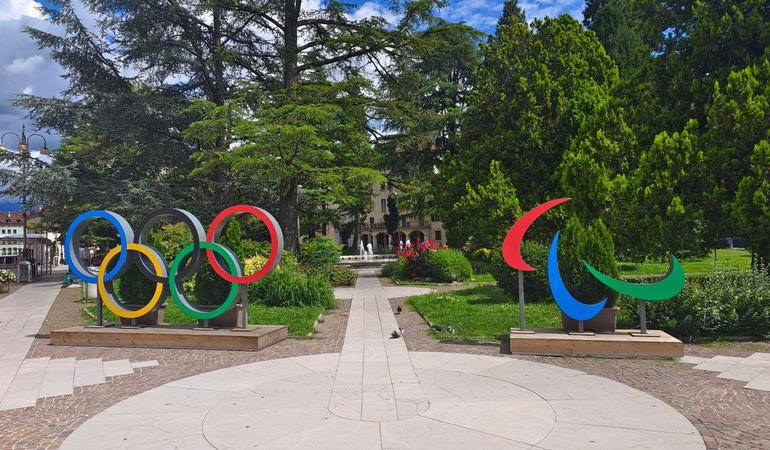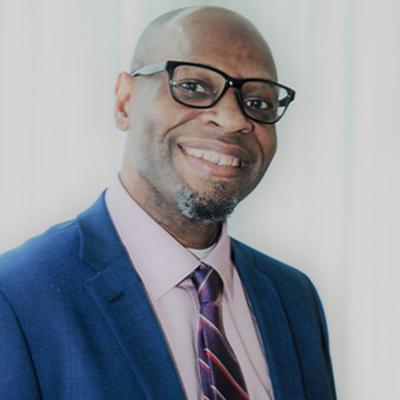
Milano-Cortina. Ecco come verranno spesi i 450 milioni di euro delle paralimpiadi


21 settembre 2022
The Russian war in Ukraine not only exposed deep-seated racism in Ukraine and in the countries of the European Union, but also revealed the bitter truth about the different treatments, based on race, reserved for black, indigenous or colored refugees, refugees from the Global South, people seeking refuge in Europe, and thus highlighted the vicious role of racism in the migration policies of the European Union and its Member States. Many people, especially from the global South, are rubbing their eyes in disbelief at the race-based priority and preferential treatment afforded to white Ukrainian refugees, while some non-whites who fled the same war have been deported from the European countries they arrived in, such as Germany. In other words, we have "good refugees" on the one hand and "bad refugees" on the other. Indeed, white Ukrainian refugees have also been defined as "VIP refugees", or "very important refugees" or "first-class refugees".
This situation has inflamed the already hotly contested but asymmetrical debates on the legal and humanitarian definitions of a refugee: who can be defined as such? The United Nations Refugee Agency (UNHCR), based on the Convention relating to the Status of Refugees (i.e. the Geneva Convention of 28 July 1951), states:
"A refugee is someone who has been forced to flee their country to cause of persecution, wars or violence. A refugee has a well-founded fear of persecution on the grounds of race, religion, nationality, political opinion or membership of a particular social group."
Leggi la versione italiana. La triplice ingiustizia contro il Sud del Mondo
The Geneva Convention is a product of the Second World War, initially drafted to meet the millions of European displaced people at the end of the conflict and later, in 1967, updated with the Protocol relating to refugee status to include refugees around the world, always based on the reasons listed above. Instead, people fleeing wars are granted limited protections through so-called subsidiary protection. Today we know that there are huge gaps in the Geneva Convention that create class inequality in the form of bureaucratic categorization and in some cases of racial selectivity, as in the case of Ukraine: good refugees and bad refugees.
Since 1967 there has been neither a revision of the Convention nor an adaptation to the new realities of displaced people globally. “We are facing an era in which environmental and natural disasters are the cause of displacement movements. They are victims of failed states, collapsing economic systems and deprivation of the right to exist and even to live anywhere. There is a risk that this problem will remain with us, even in the same dimension that we have reached now ", said in an interview Gundula Bavendamm, director of the Foundation "Flights, expulsions and reconciliation" in Berlin.
(Ita) It's time to change the definitions
he global neoliberal and neocolonial economic order is a threat to the environment and to the survival of indigenous peoples; it creates hotbeds of conflict all over the world and causes the flight of millions of people from the Global SouthPeter Emorinken-Donatus
According to UNHCR, around 90 percent of the refugees under his mandate come from the areas most affected by climate change. These forgotten victims, who make up the vast majority of refugees in the world, face exclusion from protection because they are classified, disqualified, and criminalized as "economic migrants" by the same authorities who do not have the courage to identify and prosecute the "economic criminals" responsible for these displacements. On the other hand, you don't cut the branch you are sitting on!
Furthermore, the vast majority of displaced people in the world are also victims of climate change and ecocide, that is, "illegal or unrestrained acts committed with the knowledge that there is a substantial probability of serious and widespread or long-term damage to the environment caused by such acts."
Continued coloniality in resource-rich regions of the Global South means that lands and livelihoods are robbed and destroyed by leaders from the rich North, who are masked by illegality and cruel lack of scruples towards Nature and the inhabitants of these areas. It is also an untouchable and faceless global capitalism; it is Western greed for raw materials and endless economic growth; it is a mania for the security of supply that causes devastating consequences and risks to people in the resource-rich regions of the so-called Global South, i.e. the same victims who are often denied the guarantees intended for refugees. The global neoliberal and neocolonial economic order is a threat to the environment and to the survival of indigenous peoples; it creates hotbeds of conflict all over the world and causes the flight of millions of people from the Global South. This same world economic order poses an ecological, military, political, economic and socio-cultural risk to the security of billions of people around the world.
(Ita) No protection for those fleeing the climate crisis
The case of Africa is particularly bitter. Europe is now a fortress surrounded by towering walls and barbed wire fences, extending into the territories of sovereign Africa, with the criminal institution Frontex and its acolytes in Africa as watchdogs. The chances of legal migration in Europe are so slim that it is easier for a camel to go through the eye of a needle than to obtain asylum in Europe. Never before have escape and migration been so costly, bureaucratic, tortuous, dehumanizing and life-threatening. Tens of thousands of African refugees are said to have drowned in the Mediterranean Sea while trying to migrate to Europe. The exact figures unknown. "We estimate that at least twice as many people will probably die on the way to the Mediterranean than the Mediterranean itself," Vincent Cochetel, UNHCR special envoy for the central Mediterranean, told the German weekly Welt Am Sonntag in November 2019 . That number "could also be much higher." According to the International Organization for Migration (Iom), the primary causes of death are hunger, thirst, accidents, violence, and disease. Those who survive these horrible and unimaginable odyssey risk being deported from Europe to their country of origin or to any other African country.
Most African refugees arriving in Europe via the Mediterranean Sea are Nigerians, often from the oil-rich but environmentally devastated Niger Delta region. Although it is one of the most resource-rich regions in the world, it is also said to be the worst ecocide outbreak. Living there has become so unbearable that many, desperate, are leaving their homes in search of a safe haven. However, most of them are considered and treated as economic migrants. Yet the extreme poverty in the Niger Delta is the direct result of the degradation of the environment that lasted decades with the massive destruction of livelihoods by European oil and gas multinationals such as Royal Dutch Shell, whose operations continue to constitute a serious danger to the health of the inhabitants. It is a vicious circle.
Although Africa accounts for less than 4 percent of global greenhouse gas emissions over the past 270 years, the continent suffers more than others from the deleterious effects of climate change. Eight of the ten most affected countries are in Africa. In counting Loss and Damage in the context of Climate Justice, this is part of the Triple injustice which the African continent has been made to live with, a continent that manages to live with the harsh realities of over 500 years of legalized exploitation and vandalization of Europe's environment and livelihoods.
The situation in Africa is a time bomb: everywhere, from Cape Town to Cairo, from the Niger delta to the Congo, from the Nile to the Chad basin, from ecocides to climate change: decades of drought, severe floods and storms that destroy lives, crops, biodiversity, infrastructure and livelihoods.
Climate change and ecocides are in effect the most significant drivers. Millions of Africans have already been displaced and forced to migrate. The deprivation of the right to protection of African refugees is therefore morally wrong. It also contradicts the non-discrimination clauses not only of the European Convention on Human Rights, but also of the Geneva Convention and the 1967 Protocol, which Europe has ratified: "The Contracting States shall apply the provisions of this Convention to refugees without discrimination based on race, religion or country of origin ", states Article 3.
To guarantee the right to a clean, healthy and sustainable environment as a human right, ecocide must be recognized as a crime against peace under international lawPeter Emorinken-Donatus
In the face of the devastating effects of climate change and ecocide in Africa and other parts of the global South, the Convention and Protocol must be reviewed in order to guarantee protection for all displaced persons due to climate disasters, regardless of origin, race, skin color, and religion.
Furthermore, to guarantee the right to a clean, healthy and sustainable environment as a human right, ecocide must be recognized as a crime against peace under international law. This would also be the most effective push-back policy to curb the alleged influx of refugees. Africans must have the right not to emigrate, and the fundamental right to stay at home if they so wish.
Crediamo in un giornalismo di servizio ai cittadini, in notizie che non scadono il giorno dopo. Aiutaci a offrire un'informazione di qualità, sostieni lavialibera
La tua donazione ci servirà a mantenere il sito accessibile a tutti
La tua donazione ci servirà a mantenere il sito accessibile a tutti